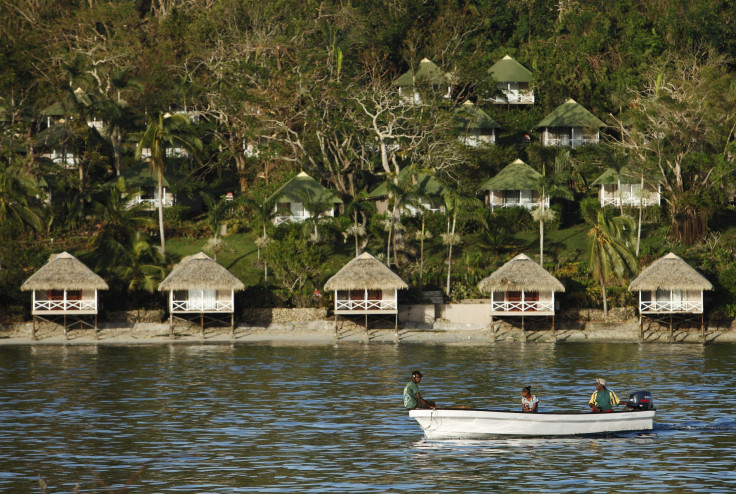Tropical Cyclone Pam: Climate Change To Blame For ‘Devastating’ Storm, Says Vanuatu President

The president of Vanuatu, a small Pacific island nation that was hit by Tropical Cyclone Pam last week, said climate change contributed to the massive storm, considered one of the worst in the history of the Pacific. Many of the island nation’s 260,000 inhabitants were left homeless and much of the country’s capital Port Vila was destroyed by the powerful Category 5 cyclone.
"It's a monster that has hit the republic of Vanuatu," the country’s President Baldwin Lonsdale said from Japan on Monday, according to The Telegraph. Lonsdale had been attending a United Nations conference in Sendai, Japan, where he talked about the “devastating” storm that tore through the island with winds topping 185 miles per hour, uprooting homes and leveling the country’s critical farming infrastructure. “It means that we have to start anew again,” the president added.
Small island nations like Vanuatu are often regarded as among the first to experience the effects of climate change. Rising sea levels caused by the melting of the polar ice caps and other factors are threatening many low-lying islands, whose populations have begun moving to higher ground or have considered leaving their homes altogether. By some estimates, island nations like Kiribati in the Central Pacific, whose population is over 100,000, could vanish beneath the waves in the next 50 years.
Tropical Cyclone Pam formed Tuesday, March 10 in the Pacific, quickly intensifying from a Category 2 to a Category 5. The storm slammed Vanuatu late Friday with strong winds and torrential rainfall. Meteorologists called the storm the biggest to make landfall since Super Typhoon Haiyan in 2013.
At least eight people on Vanuatu were killed in the storm, but officials feared that number could rise sharply as rescue workers begin combing the nation’s smaller outer islands, which had lost communication with the country’s capital. “Most people in outer islands live completely rural lives,” Tom Perry of Care International, an aid organization working in Vanuatu, told the Guardian. “They grow what they eat, and this will have wiped out their entire food stocks. People live in very simple accommodation, huts made of timber and palm leaves. There’s no way buildings like that are going to withstand a category five cyclone.”
© Copyright IBTimes 2024. All rights reserved.






















